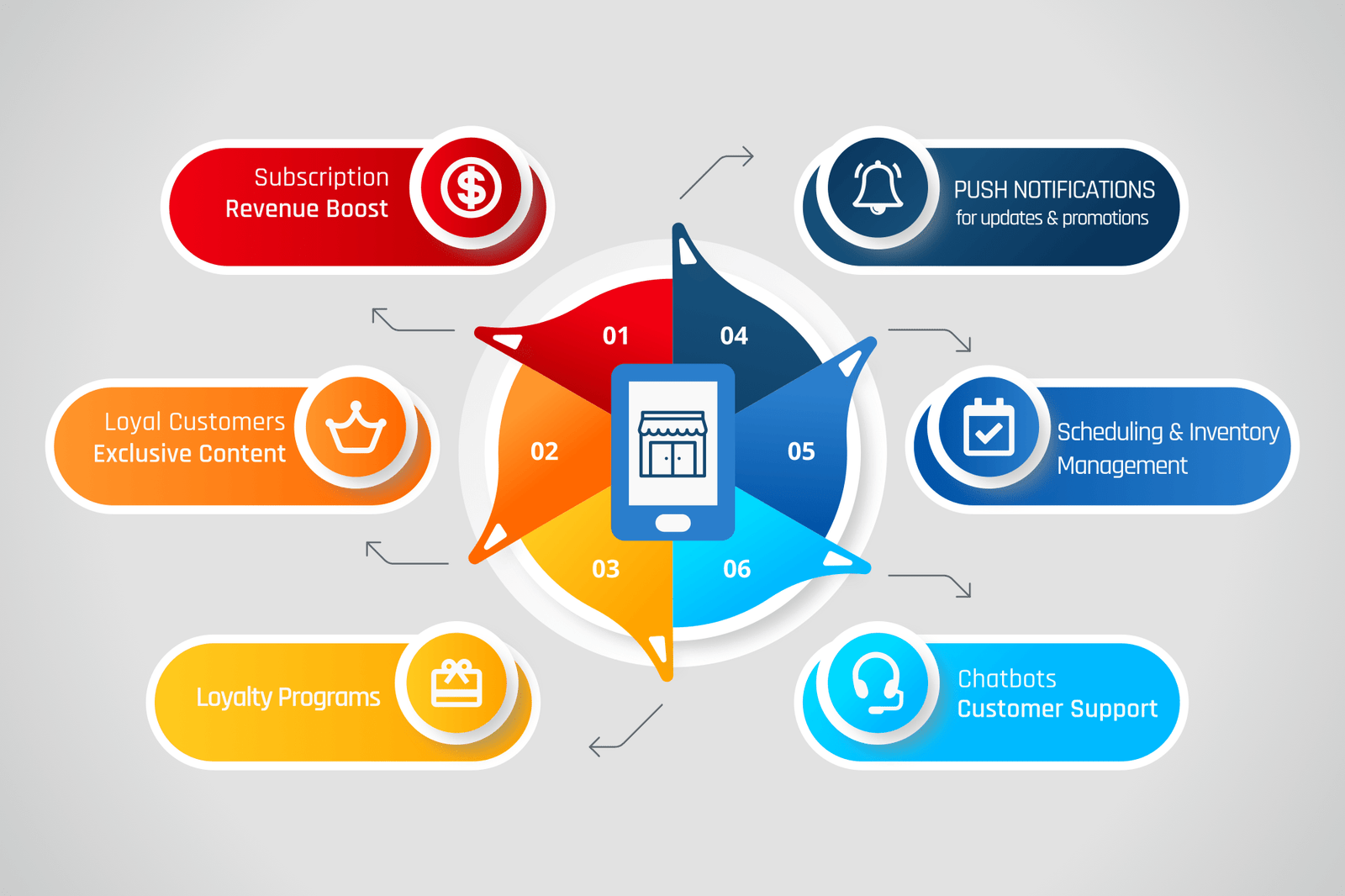
Mobile apps are no longer a luxury but a necessity for small and medium businesses (SMBs). With over 2.7 billion smartphone users worldwide, SMBs can leverage apps to reach more customers, streamline operations, and compete with larger firms.
1. Enhancing Customer Engagement
Mobile apps allow businesses to build stronger relationships with their customers by providing personalized and immediate communication channels. With features like push notifications and integrated chat systems, apps make businesses more accessible.
Checklist for SMBs:
2. Increasing Operational Efficiency
Efficiency is critical for SMBs, and mobile apps streamline operations by automating repetitive tasks and improving team collaboration. Apps connected to cloud systems allow real-time updates and data sharing across teams, reducing errors and improving productivity.
Checklist for SMBs:
3. Personalized Marketing Opportunities
Mobile apps provide SMBs with unique tools to personalize their marketing strategies. By analyzing user behavior, businesses can tailor promotions and recommendations to individual preferences, ensuring a better response rate and customer loyalty.
Checklist for SMBs:
4. Building Brand Awareness
A mobile app can significantly boost a business’s visibility and brand recognition. By keeping your brand on users’ devices, apps ensure regular engagement and create a professional image that fosters trust and loyalty.
Checklist for SMBs:
5. Generating Additional Revenue Streams
Beyond customer acquisition, mobile apps can serve as an extra source of income. By leveraging in-app purchases, subscription services, and premium features, businesses can create new revenue opportunities
Checklist for SMBs:
Conclusion
Investing in a mobile app is a transformative step for SMBs. Whether it’s enhancing customer engagement, streamlining operations, or creating new revenue streams, apps enable businesses to thrive in a competitive market. With tools like React Native and Flutter, even small businesses can afford top-tier app experiences.


